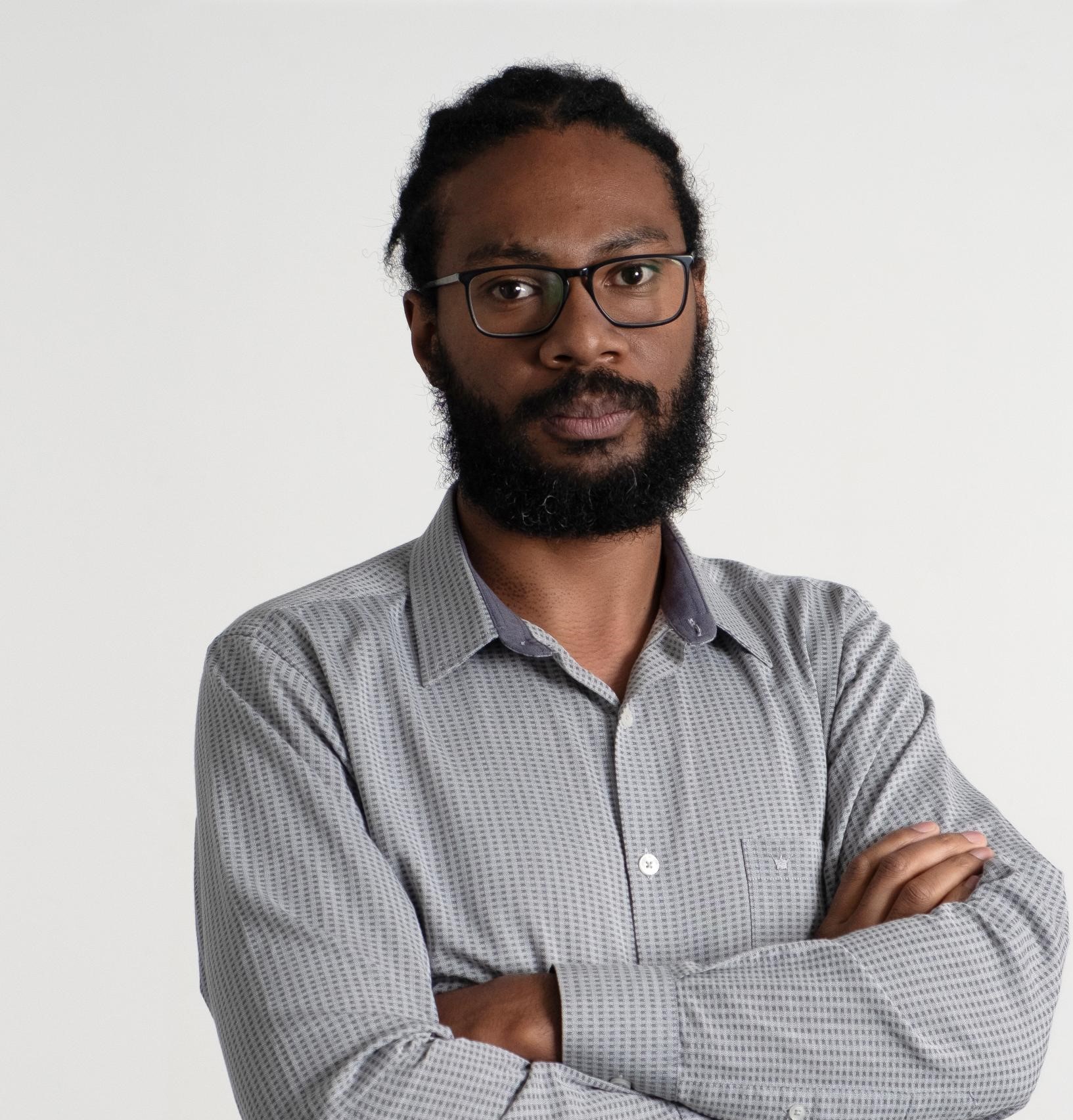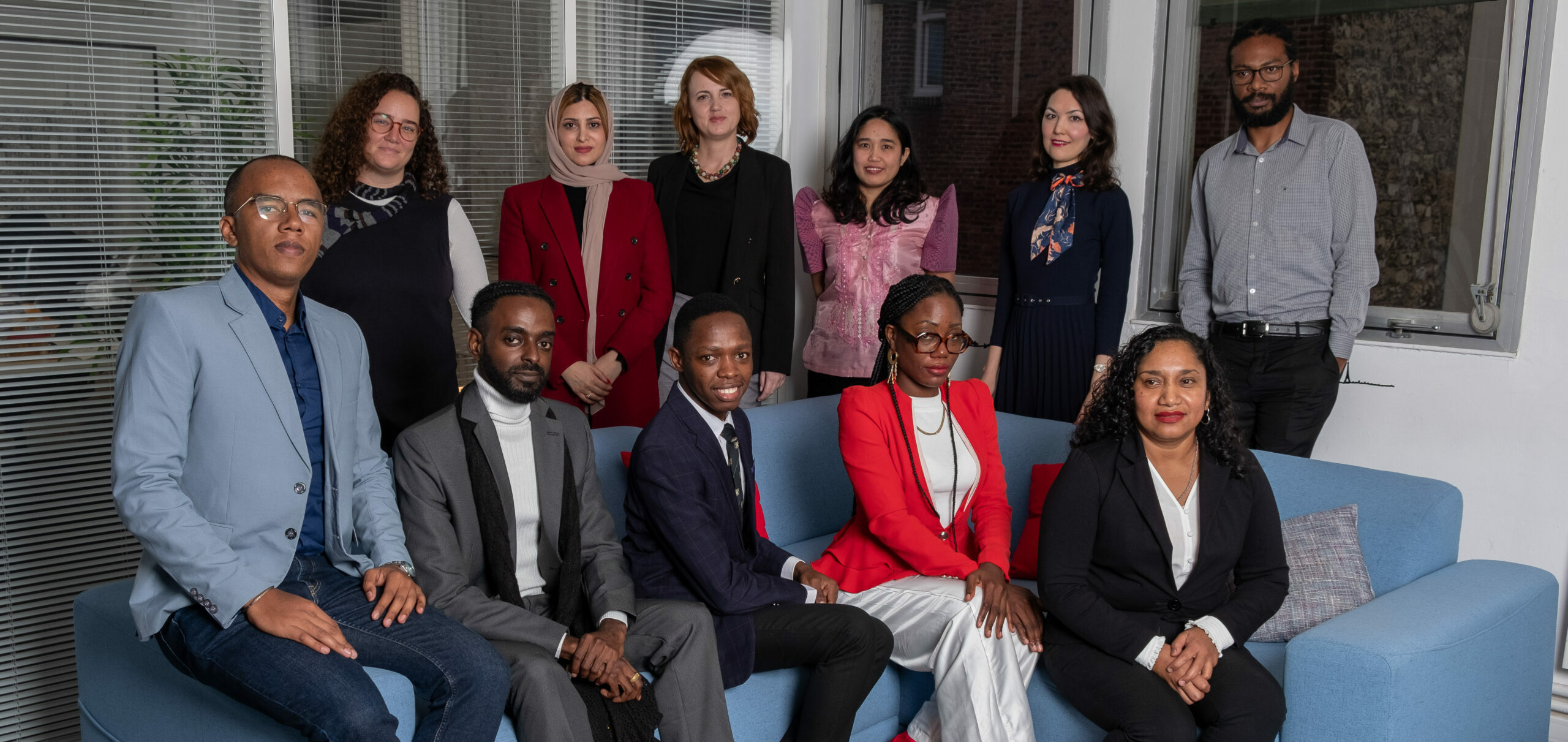
Description
Dennis de la Cruz is an Afro-Ecuadorian communications officer and social mediator who has been involved in the defense of human rights since 2007. He has been actively involved in organizations and collectives working on the themes of community communication, popular education and rights promotion. He works at the Regional Foundation for Human Rights Consulting (Inredh), one of Ecuador's leading human rights organizations. Dennis is also a member of "El Churo", an organization supporting community education processes and the committed digital platform "Wambra". He produced various documentaries on extrajudicial executions, enforced disappearances, torture, migration and extractivism between 2018 and 2021 (e.g. "Brutal como el rasgar deun fósforo"). He is also part of the coalition of organizations defending digital rights in Ecuador.
Interview with Dennis De la Cruz - April 19, 2024
Could you please introduce yourself?
My name is Dennis De La Cruz and I work in advocacy for one of Ecuador's oldest human rights organizations, Inrehd. I'm part of the communications team, in charge of research and audiovisual production. I'm also in charge of the smooth running of IT platforms, such as the web page, e-mail addresses, etc.
Can you describe your commitment as a human rights defender?
As a rights defender, I'm particularly committed to cyber-security. In Ecuador, population control technologies (surveillance camera systems) have become widespread and are installed with the agreement of the State to reduce insecurity and delinquency. However, not only have these systems failed to reduce insecurity in Ecuador, they have also been misused to monitor the population, particularly rights defenders and those already discriminated against.
The absence of standards implies a lack of regulation regarding their use. This is why, during political crises, these devices are used to control dissidents and opponents. As a result, they do not protect citizens, but serve to prosecute them.
That's why, as part of my participation in the Marianne Initiative, I'm aiming to draw up a first draft law regulating the use of surveillance cameras to protect human rights defenders in Ecuador.
Why did you decide to get involved in human rights?
As an Afro-Ecuadorian, I was perceived and treated differently from the rest of the population. In Ecuador, minorities, and in particular Afro-Ecuadorian and indigenous descendants, are marginalized and face violations and restrictions of their fundamental rights (access to education, health, drinking water, etc.). Confronted with these injustices since childhood, I had to do something to promote and protect the rights of marginalized populations. That's why I chose to dedicate my life and work to this fight, to change this reality.
What do you expect from the Marianne Initiative as you consolidate your project?
My expectation of the program is to get more contacts so that we can work together for human rights and be supported internationally. This international dimension is central. If Ecuador is observed by the international community, this may spur the authorities to develop mechanisms to tackle current problems. What's more, my participation in the Initiative gives me international visibility to denounce abuses.
In addition, Ecuadorian organizations face a complex economic situation, as they lack the resources and personnel to carry out their activities. So the most important thing for me is to acquire support and funding.
What do you expect from the Marianne Initiative program? ?
As part of the Marianne Initiative, I attend training courses and meet different personalities. Thanks to this, I'm developing a different vision of human rights work. The program also enables me to acquire essential knowledge about jurisdictions and the European system. In addition, it puts me in touch with organizations and governments, so that I can create possible cooperative ventures. These exchanges enable me to learn from the experiences of other French and international players, and share my own as an expert in digital rights.
For example, the French government was an important ally for the Ecuadorians during the United Nations Universal Periodic Review.
What do you plan to do after the program ends?
After the six months in France, I'll be returning to Ecuador and continuing my involvement with Inrehd. I'll be continuing my work and my commitment, building on the contacts and tools acquired during the Marianne Initiative program. I hope to maintain my ties with the Initiative teams and the French government, who have supported me in my human rights activities.
Would you like to add anything?
The current situation in Ecuador is very worrying. Rights defenders are stigmatized because official discourse blames them for the country's problems. The needs of the population are not taken into account, rights are limited, and the population is controlled. The absence of concrete measures to change the situation, but also the militarization, the rollback of human rights and the stigmatization of communities are of great concern to me.
Do you have a question? Please contact us!
Contact
